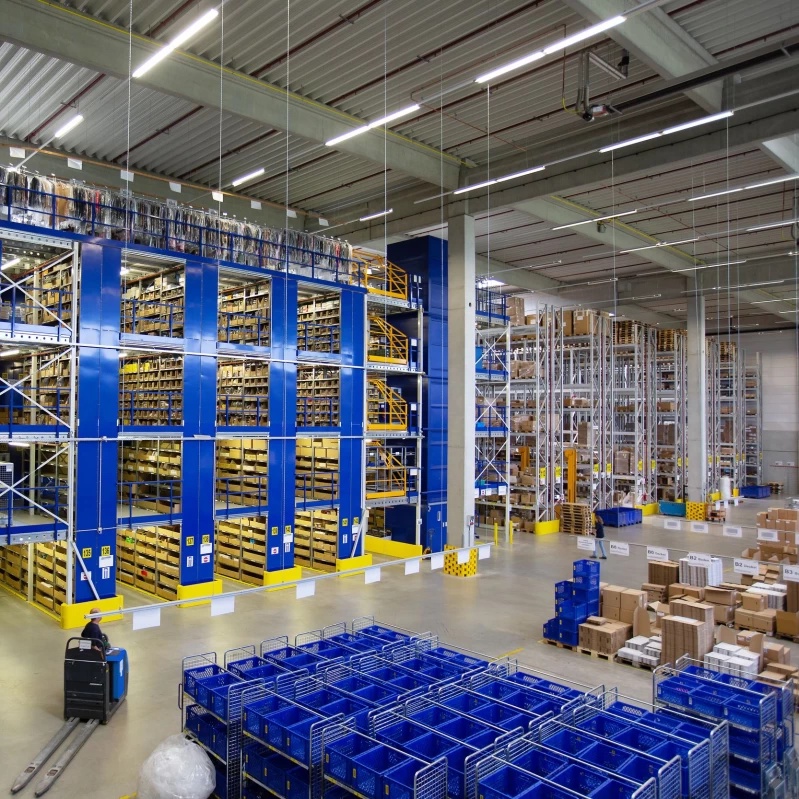Blockchain technology, originally developed to support cryptocurrencies like Bitcoin, has transcended its initial purpose and is now revolutionising various industries, including supply chain management. With its decentralised, transparent, and immutable ledger system, blockchain has the potential to enhance efficiency, security, and transparency across a wide spectrum of applications. In this blog, we'll explore how blockchain technology is transforming the supply chain and beyond.
Understanding Blockchain Technology
Before delving into its applications, let's briefly understand what blockchain technology is. At its core, a blockchain is a distributed ledger that records transactions across a network of computers. Each transaction, or "block," is linked to the previous one through a cryptographic hash, forming a continuous chain. The information is stored in a decentralised and transparent manner, making it nearly impossible to alter once recorded.
Revolutionising the Supply Chain
The supply chain is a complex web of processes involving multiple parties, from manufacturers and suppliers to logistics provider and retailer. Ensuring the smooth flow of goods, tracking products, and verifying the authenticity of items are just a few of the challenges within the supply chain. Blockchain is making significant strides in addressing these issues. Here's how:
Transparency and Traceability: Blockchain's decentralised ledger offers real-time visibility into the movement and status of goods. Each item in the supply chain can be recorded on the blockchain, allowing stakeholders to trace a product's journey from its origin to its final destination. This transparency reduces the risk of fraud, counterfeiting, and theft.
Smart Contracts: Smart contracts are self-executing agreements with predefined rules and conditions. In the supply chain, smart contracts can automate various processes, such as payments and customs clearance, when specific conditions are met. This eliminates the need for intermediaries, reduces delays, and minimizes the risk of errors.
Reduced Paperwork: Blockchain technology streamlines documentation by enabling digital records. Instead of relying on paper-based documents and manual record-keeping, supply chain participants can use blockchain to create, store, and share digital records. This reduces the potential for data entry errors and simplifies record management.
Improved Quality Control: The ability to trace the origins of products enables quicker identification and recall of defective items, improving quality control. This is particularly crucial in industries like food and pharmaceuticals, where product safety is paramount.
Real-Time Data: Real-time data access across the supply chain allows for better decision-making. Stakeholders can respond promptly to disruptions or changing customer demands, optimising inventory management and production.
Enhanced Trust: Trust is a fundamental component of supply chain operations. Blockchain technology fosters trust by ensuring data integrity and security. The immutability of blockchain records reduces the likelihood of disputes or disagreements among supply chain partners.
Beyond the Supply Chain: Other Applications of Blockchain
While blockchain has made significant headway in supply chain management, its impact extends to various other sectors:
Finance and Banking: Blockchain is poised to revolutionise the financial industry. It offers a secure and efficient method of conducting cross-border transactions, reducing settlement times and costs. Additionally, blockchain can provide the foundation for decentralised finance (DeFi) applications.
Healthcare: In healthcare, blockchain can securely store patient records, ensuring their confidentiality and accessibility by authorised parties. This technology can streamline medical data sharing, enhance interoperability, and improve patient care.
Voting Systems: Blockchain can transform the voting process by offering secure, transparent, and tamper-resistant digital voting systems. This can improve voter turnout and eliminate concerns about electoral fraud.
Intellectual Property and Copyright: Protecting intellectual property is a critical concern for many creators. Blockchain can establish a verifiable, timestamped record of ownership and the creation date, making it easier to prove ownership in cases of copyright disputes.
Supply Chain and Authenticity of Goods: Beyond the physical supply chain, blockchain is used to verify the authenticity of luxury goods, art, and collectibles. By storing the history of an item on a blockchain, consumers can ensure that their purchases are genuine.
Energy Trading: Blockchain enables transparent and secure peer-to-peer energy trading. Individuals and businesses can buy and sell excess energy directly, reducing reliance on centralised utilities.
Real Estate: Real estate transactions involve various parties and a lot of paperwork. Blockchain can simplify the process by digitising property records, reducing fraud, and speeding up transactions.
Education and Credentials: Blockchain can store educational credentials, certifications, and diplomas in a secure and easily verifiable way. This prevents credential fraud and simplifies the verification process for employers and educational institutions.
Challenges and Considerations
While the potential benefits of blockchain technology are clear, its adoption is not without challenges. Some key considerations include:
Regulatory Hurdles: The regulatory environment for blockchain varies by region. To achieve widespread adoption, a standardised and well-regulated framework is needed.
Scalability: Blockchain networks can face scalability issues, particularly when handling a high volume of transactions. Solutions like sharding and layer-2 networks are being explored to address this challenge.
Energy Consumption: Some blockchain networks, like Bitcoin, are energy-intensive. As sustainability becomes a more significant concern, finding eco-friendly solutions is crucial.
Privacy Concerns: While blockchain provides transparency, it can also raise privacy concerns, especially in applications like healthcare. Striking a balance between transparency and data protection is essential.
Interoperability: Different blockchains may not be compatible, hindering their ability to communicate and share data. Achieving interoperability is crucial for the seamless operation of blockchain networks.
Conclusion
Blockchain technology has the potential to revolutionise a wide range of industries, from supply chain management to healthcare, finance, and beyond. Its decentralised, transparent, and secure nature offers innovative solutions to longstanding challenges. While there are challenges and considerations to address, the ongoing development and adoption of blockchain technology promise to drive transformative change across various sectors, shaping the future of how businesses and organisations operate. The key to success lies in embracing this technology and adapting to the new opportunities it presents.


No comments yet